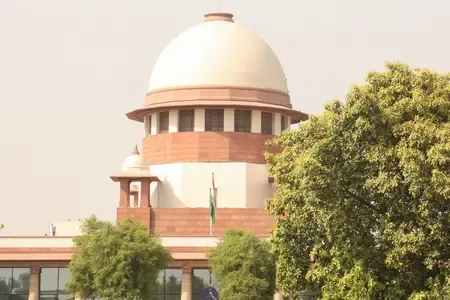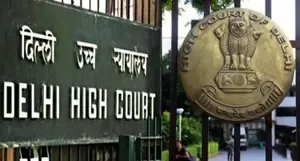Will the SC Postpone the SIR in Kerala on Nov 21?

Synopsis
Key Takeaways
- The Supreme Court is set to hear a critical plea regarding the postponement of the SIR in Kerala.
- The Kerala government cites manpower issues as a primary concern.
- Local body elections are crucial and must adhere to constitutional deadlines.
- The outcome may set precedents for future electoral processes.
- The situation highlights the balance between administrative efficiency and democratic rights.
New Delhi, Nov 19 (NationPress) The Supreme Court has consented to urgently schedule a hearing for a plea that seeks to delay the Special Intensive Revision (SIR) of electoral rolls in Kerala due to the impending elections for the Local Self-Government Institutions (LSGIs).
A bench led by Chief Justice of India (CJI) B.R. Gavai stated that the case will be addressed on Friday (November 21), following the lawyer's notification to the apex court that the SIR process is currently in progress while Kerala prepares for local body elections in the second week of December.
Interestingly, the Kerala government itself has petitioned the Supreme Court for a postponement of the SIR process, after the Kerala High Court declined to consider its writ petition for a deferment last week.
Pointing to significant manpower limitations, the state administration has claimed that conducting the SIR at the same time as the LSGI elections could lead to an “administrative deadlock”.
In its petition under Article 32, Kerala emphasized that over 1,76,000 government and quasi-government employees, along with 68,000 security personnel, are necessary for the local elections. The SIR requires an extra 25,668 officials, many of whom come from the same limited pool of trained election workers.
“There exists a constitutional requirement to finalize the LSGI elections before December 21, 2025. Conducting the SIR concurrently will overburden the administration and hinder the orderly conduct of the elections,” the state's petition stated, referencing the statutory deadlines established under the Kerala Panchayat Raj Act, 1994 and the Kerala Municipality Act, 1994.
It contended that while local body elections are mandated to be completed by December 21, there is no urgent need to finalize the SIR at this stage, especially since assembly elections are not scheduled until May 2026.
“Rushing through the verification process and compromising its quality during constitutional elections undermines the democratic right to vote,” the petition asserted.
Before the Kerala High Court, the Election Commission of India argued that the SIR is part of a nationwide initiative, with more than half of the process already completed, adding that pausing it would disrupt preparations for future elections.
A single-judge bench of Justice V.G. Arun observed that similar petitions challenging the SIR in Bihar, Tamil Nadu, and West Bengal are pending before the Supreme Court, stating that “judicial discipline and comity” require the Kerala High Court to abstain from hearing the case.









